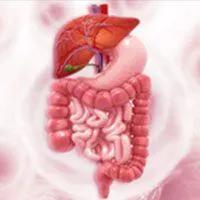
Dr. Wainberg on Optimal Frontline Treatment Strategies for Metastatic ESCC

Zev A. Wainberg, MD, discusses standard frontline treatment approaches for patients with metastatic esophageal squamous cell carcinoma and highlights data supporting the use of tislelizumab in combination with chemotherapy in ESCC.
Chemotherapy and immunotherapy regimens are commonly used as initial treatments in metastatic ESCC. uch regimens can include chemotherapy plus immunotherapy, immunotherapy alone, or chemotherapy alone. Patients with a high PD-L1 combined positive score (CPS) will benefit most from chemoimmunotherapy regimens. However, recent developments in ESCC treatment enable some patients with high PD-L1 expression to experience benefit from immunotherapy alone, Wainberg explains.
Data from the phase 3 CheckMate 648 trial (NCT03143153) evaluated the dual immune checkpoint inhibitor combination of nivolumab (Opdivo) plus ipilimumab (Yervoy) for patients with ESCC. The international, open-label trial featured 2 additonal treatment arms, consisting of nivolumab and ipilimumab plus fluorouracil and cisplatin chemotherapy, and chemotherapy alone.
Results from the trial demonstrated a significant improvement in overall survival for patients receiving first-line anti-PD-L1 and anti-CTLA-4 therapy both with and without chemotherapy. This data supports the use of both treatment options in the first-line setting, Wainberg notes.
The addition of the anti–PD-L1 agent, tislelizumab, plus chemotherapy in ESCC has also been investigated in the phase 3 RATIONALE-306 trial (NCT03430843). The randomized, global study evaluated the addition of tislelizumab to the investigator's choice of chemotherapy compared with chemotherapy alone for patients with unresectable, metastatic ESCC with no prior treatment for advanced disease.
The trial met its primary end point by demonstrating an increase in OS benefit for patients receiving the combination regimen vs chemotherapy alone.
Findings from RATIONALE-306 add to an increasing body of data that support PD-L1 inhibitors as a preferred frontline treatment in ESCC. Accordingly, the combination of tislelizumab plus chemotherapy may become a viable treatment alternative for this patient population in the near future, Wainberg concludes.






































